150 Years Ago: The Paris Commune
| revcom.us
150 years ago, in 1871, amidst a war between “their” government and that of Germany, working people in the capital city of France, long exploited, impoverished, and degraded, rose up to seize power and established a new form of association among people. This was the Paris Commune, which existed only in that one part of France, and which lasted for only two short months, but which represented, in embryonic form, a communist society in which distinctions of class and oppressive divisions among people would be finally abolished. The Commune was crushed by the weight and force of the old order—with thousands slaughtered in a valiant but ultimately vain attempt to keep the Commune alive. But the first steps had been taken toward a new world, the path had been opened, the way shown, if only fleetingly.
Even before the events of the Paris Commune, the possibility of a radically new world, without exploitation and oppression, had been scientifically established through the work of Karl Marx, together with his contemporary and collaborator, Frederick Engels, the founders of the communist movement. As Marx himself put it, only a few years before the Commune:
“Once the inner connection is grasped, all theoretical belief in the permanent necessity of existing conditions breaks down before their collapse in practice.”
The Paris Commune was a first great attempt to scale the heights of human emancipation, and it was a harbinger of the future, but it lacked the necessary leadership and was not guided by the necessary scientific understanding to be able to withstand the inevitable counter-revolutionary onslaughts of the forces of the old order and then to carry out a thoroughgoing transformation of society, in all spheres: economic, social, political, cultural, and ideological. Some who approach the experience of the Commune with a romanticized, instead of a scientific, outlook and method, like to cite the lack of an organized vanguard leadership, unified on the basis of a scientific, Marxist viewpoint, as one of the virtues of the Commune. But the fact is that this was one of its greatest weaknesses and one of the main factors contributing to its defeat, after only a very short period of existence. The lack of such a leadership—and the attempt to immediately implement measures that would essentially eliminate any institutionalized leadership—is one of the main reasons why the Commune did not sufficiently suppress organized forces that were determined to wipe out the Commune and to ensure that the specter of communist revolution—so terrible from the standpoint of exploiters and oppressors—would never rise again. In particular, as Marx pointed out, the Communards failed to march immediately on the stronghold of the counter-revolution, in the nearby city of Versailles; so the counter-revolution was able to gather its strength, march on Paris, and deliver the death blow to the Commune, slaughtering thousands of its most determined fighters in the process.
But beyond the immediate consequences that flowed, to a significant degree, from the shortcomings and limitations of the Paris Commune, the reality is this: Had the Commune defeated the attacks of the counter-revolution and survived, it would then have faced the even greater challenge of reorganizing and transforming the whole society, and not just the capital, Paris, where it held power for a brilliant but all too brief period. It would have had to create a radically new and different economy, a socialist economy, in a country still made up largely of small farmers (peasants), and it would have had to overcome profound and tradition-steeped inequality and oppression, in particular the chains that have bound women for thousands of years. And here again the weaknesses and limitations of the Commune stand out: Women played a vital and heroic role in the creation of the Commune and the fight to defend it, but they were nonetheless maintained in a subordinate position within the Commune.
Read more...
COMMUNISM: THE BEGINNING OF A NEW STAGE
A Manifesto from the Revolutionary Communist Party, USA
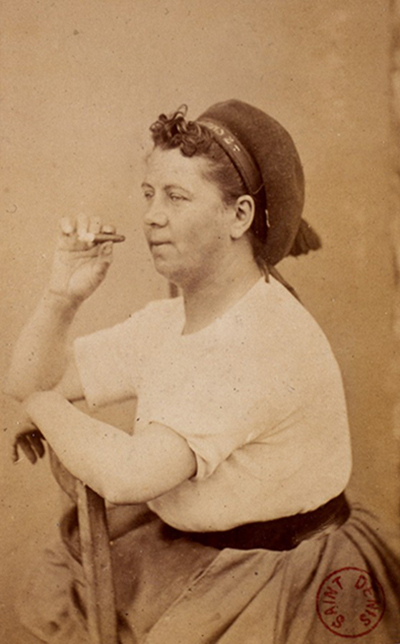
Hortense David, one of the Women of the Paris Commune, with cigar she used to light cannons.
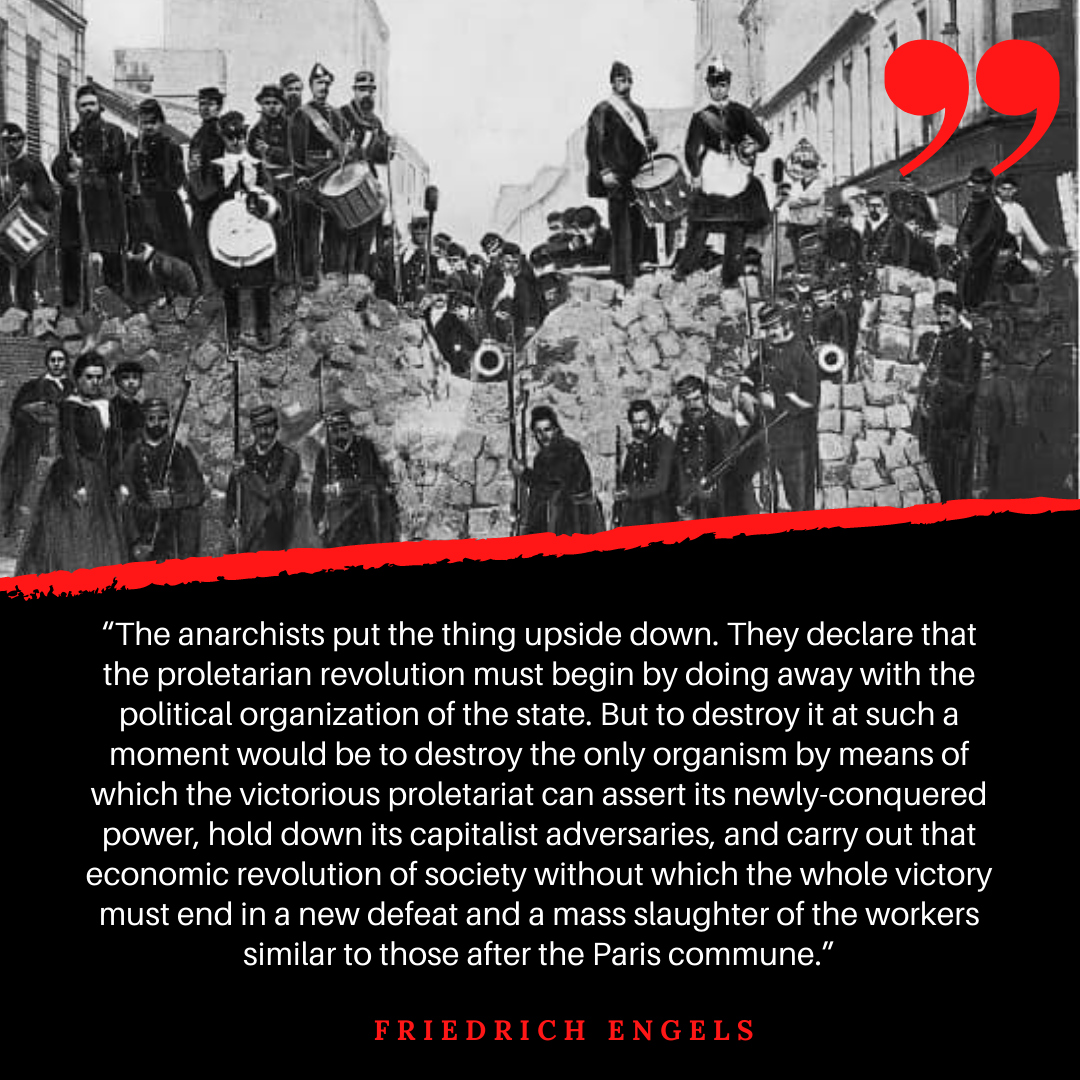
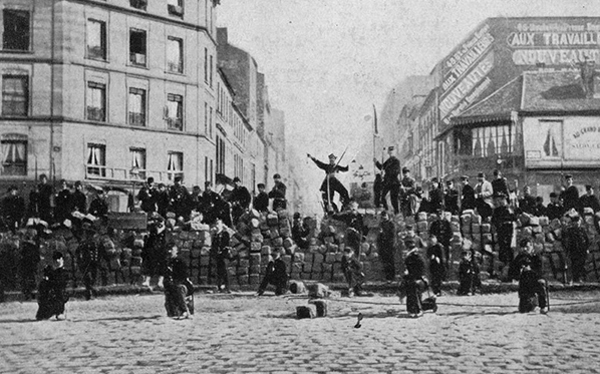
Barricades of the Paris Commune, 1871
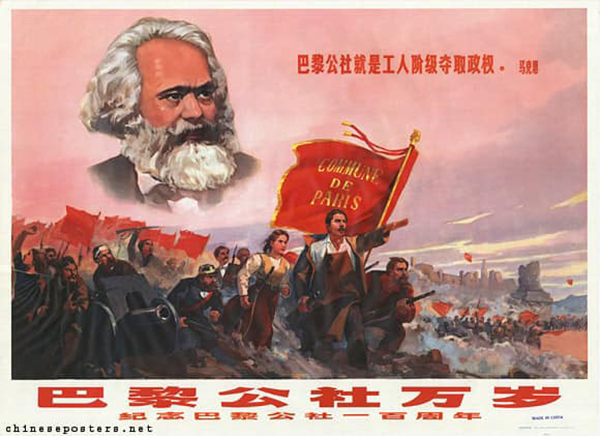
Poster from the Cultural Revolution in China commemorating the 100 year anniversary of the Paris Commune
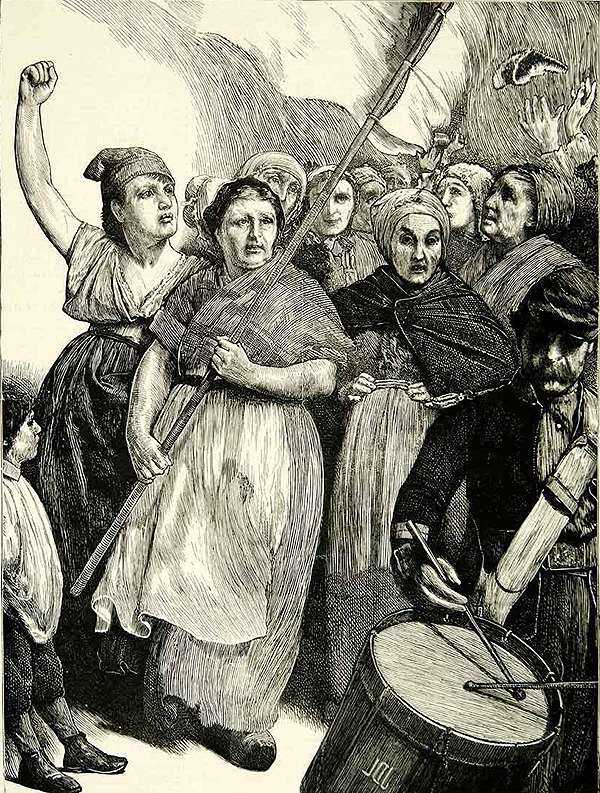
Women of the Paris Commune, 1871
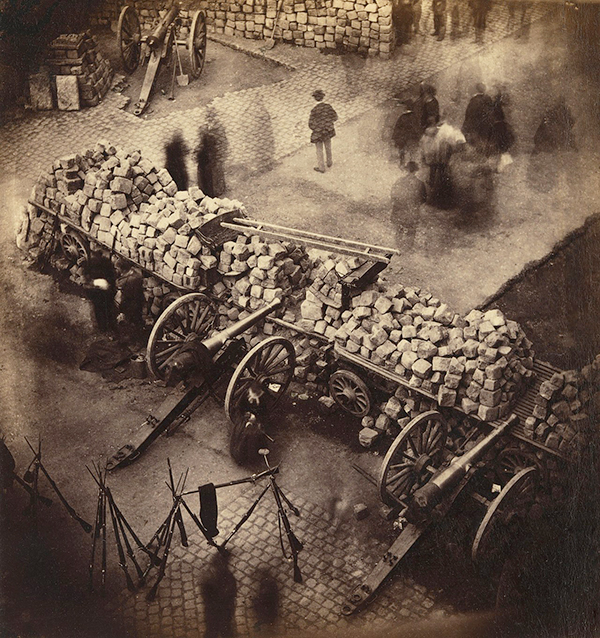
Barricades of the Paris Commune, 1871
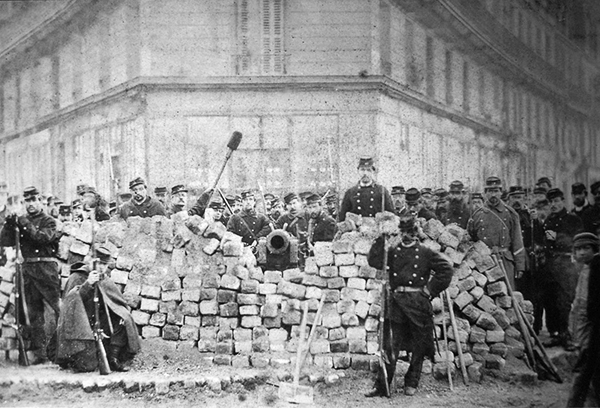
Barricades of the Paris Commune, 1871
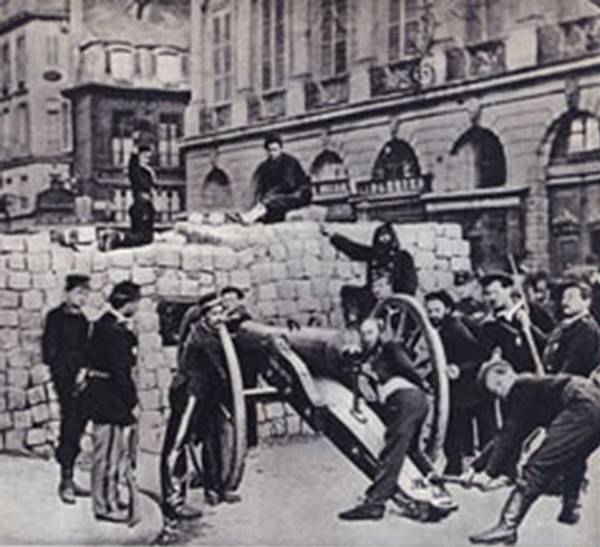
Barricades of the Paris Commune, 1871

Hortense David, one of the Women of the Paris Commune, with cigar she used to light cannons.
Get a free email subscription to revcom.us:

